What makes highest effieciency?
The aerated secondary treatment process is the heart of nearly every wastewater plant. The compressors are its lungs.
What really matters
Next Turbo’s proven dual device control philosophy which uses two control devices to independently control flow and pressure, is the most efficient solution available on the market. Our product range features industry standard, commercially-available components and avoids the use of special high frequency drives and complex electronic filtering components.
The Compressor Control

Diffuser Control - Mechanical Single Device Control
This control mechanism is a Mechanical Single Device Control, regulating the airflow with mechanical outlet diffuser vanes ,changing the relative airflow vector and therefore relative air- speed with limited influence to the required pressure line. Effectively moving the compressor performance curve along the horizontal axis. No efficiency compensations for fluctuations in pressure and air characteristics (temperature, relative humidity) are provided. To add this control feature, refer to the 2-point-control mechanism below.
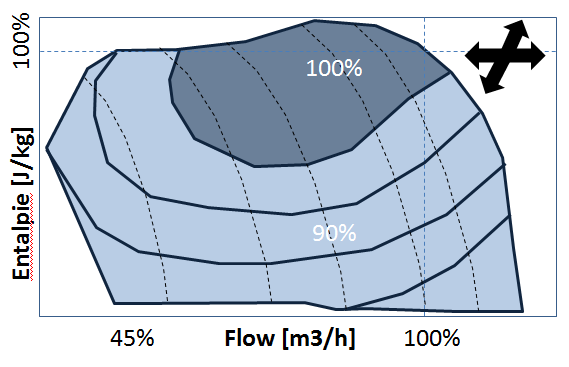
Diffuser and Inlet vanes Control - Mechanical 2-point-Control
Featuring the same 2-point mechanism as above, but utilizing two mechanical systems: the outlet diffuser vanes in combination with inlet guide vanes. The inlet guide system also adjusts for changes in pressure and air quality (e.g. temperature, relative humidity) by changing the pre-rotational angle of the inlet air flow. This is handled with contant speed. Compare the relative efficiency map to the right to see the differences.
Diagrams: The dark blue lines represent relative efficiency lines; dashed black lines are the compressor curves as different diffuser positions.
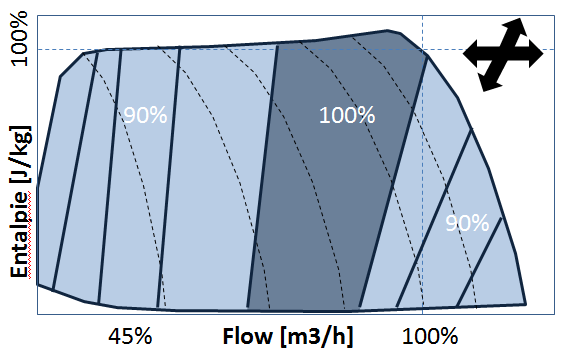
Diffuser and VFD Control - Mechanical/Electrical Dual Device Control
Featuring the mechanical outlet diffuser blades, but extending the control range with its electrical control. A standard low frequency VFD is adjusting the speed within a limited bandwidth to adjust the compressor operation to pressure/ air quality fluctuations (e.g. temperature, relative humidity). Please note: the VFD is not used, as in regular speed controls, to regulate the airflow; it is a fine-tuning mechanism. The airflow regulation is handled by the outlet diffuser vane system.
Important for your decision!
The control of the flow/ pressure turndown of a compressor is at the heart of every OPEX evaluation. The off-design operating points are the conditions in which the compressor runs most of his life.
A compressor control can be more than just regulating the speed.
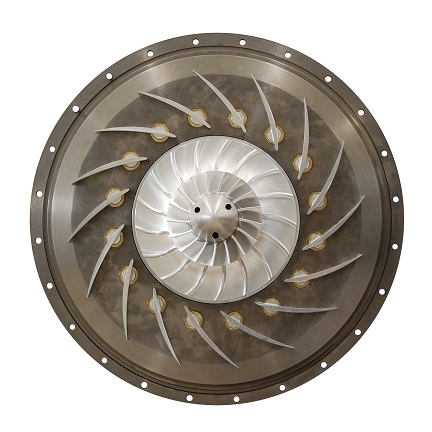
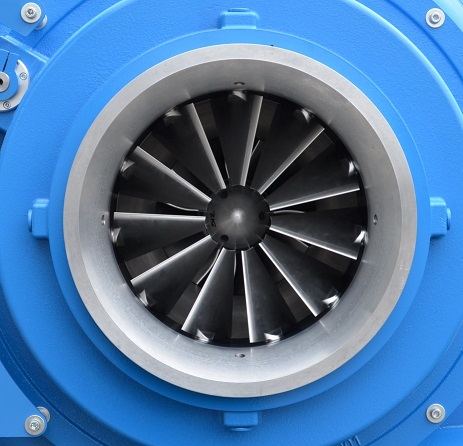
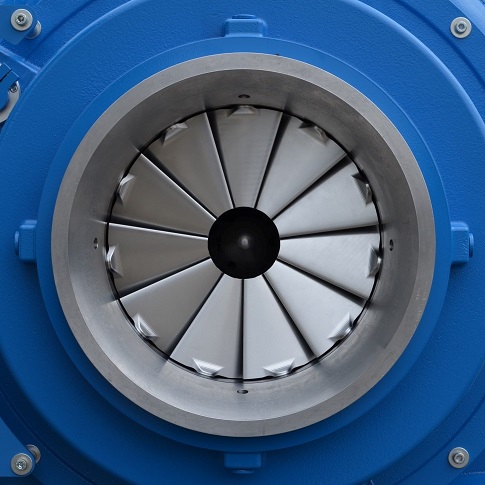
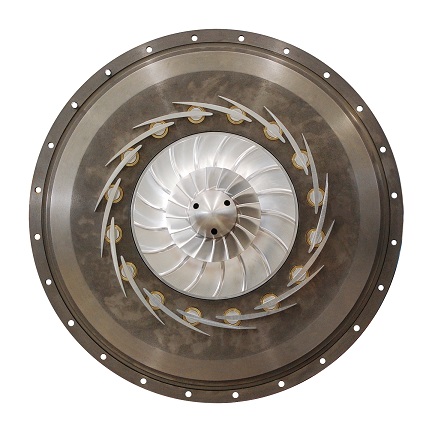
The Impeller
The geometry and dimensions of the impeller define the compressor curve (see above dashed lines in diagram) and influences its absolute design efficiency. The impeller utilized is designed for the specific requirements and specifically suited for discharge diffuser vane operation (1-point and 2-point vane regulation control).
The impeller is milled out of a solid block of high strength aluminimum alloy and slightly backleaning for increased efficiency.
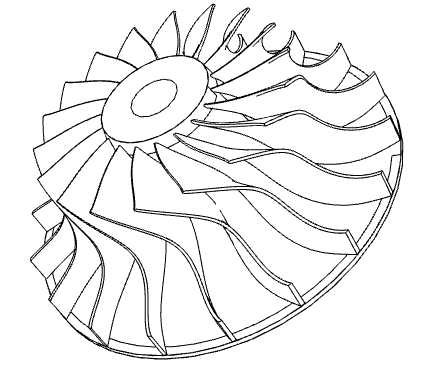
2016 © Next Turbo Americas - All Rights Reserved. Disclaimer | Legal Notice | Data Protection
